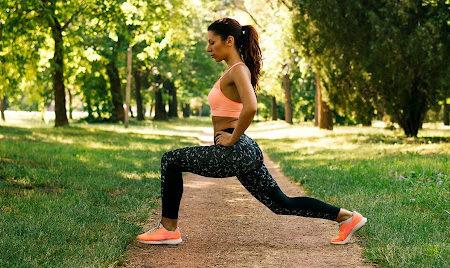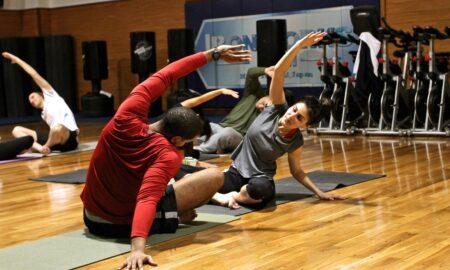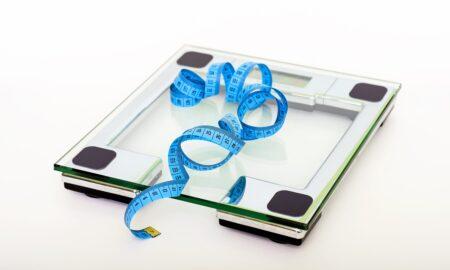On April 24, 1998, James DeMelo was in a serious accident. A semi-truck hit his car, and the impact left him virtually dead at the scene. There was a paramedic on the corner, and when he rushed to the car and checked James' vitals, he couldn't feel a pulse. Still, he began CPR, and James' heart began to beat again.
Through the grace of God, DeMelo's life was saved, but he had broken his neck in two places. His back was broken in four places, his shoulder blade and a couple of ribs were also broken, and he'd suffered various other injuries.
'I wore a halo brace on my head for three months so the neck vertebrae could heal,' DeMelo says. 'Even after that I had a long way to go in the recovery process. Significant nerve damage remained, and a large portion of my muscle mass had atrophied. I had so much to overcome, and I wasn't sure I could do it. But I had to try.
'Someone once told me that the only thing that stands between a man and what he wants from life is the will to try and the faith to believe it is possible. At first it was difficult, but I forced myself to go to the gym twice a day. Within the first two weeks I had increased my strength and stamina, and my mobility had greatly improved. I began to see that it was possible to regain my quality of life.
'After three months of consistent workouts, a healthy diet and supplementation, I lost 16 pounds of fat and regained 11 pounds of lean muscle mass. Eight weeks into the program I felt so good that I was able to minister for a week in Ghana, West Africa. When I started, I couldn't do 15 minutes of cardio or play with my daughter for more than a few minutes at a time. I couldn't lift heavy things or do yard work. I didn't know if any of these things would ever be possible again. Now I can say to anyone who's been injured: It is possible to recover, it is possible to regain, and it is possible to reclaim your life.
'My life has been devoted to helping people spiritually, but now I know that I can encourage people physically as well. I'm an example of what can be achieved with dedication, hard work and God's help. Already I've been able to motivate those in the gym who watched my metamorphosis. I truly believe that there's opportunity in the middle of every difficulty, and that the fullness or emptiness of life is measured by the extent to which we feel we have an impact on others. That's why I'll keep reaching out however I can, even if it's just being able to say, 'Hey, I did it'so can you.'
'I saw my rehab doctor a year after my accident, and he couldn't believe the progress I had made. But for me it wasn't just the physical changes that have made a difference in my life. While those things are important, and I'm happy that I can run and play with my little girls and teach them soccer and softball, the real peace of mind comes from knowing that my faith can help me overcome any obstacle life throws at me.
'Throughout my life I've found that when you help others reach their dreams, you usually reach yours in the process. So I tell people, 'You can change your life! Don't focus on what you are but on what you can become.' The accident had a profound effect on DeMelo's life, but bodybuilding was a part of his life even before it occurred, and eventually it led him down the path of faith and spirituality. The accident simply helped bring everything into perspective. He is an ordained minister'a missionary evangelist is what he calls himself, 'because I travel overseas most of the time and conduct mass soul-winning crusades. I have been to 20 nations and have had my work translated into eight languages.' He now resides in Grand Rapids, Michigan, with his wife Misty, and daughters Alexa, Mikayla and Elissa. The following interview includes his thoughts on his bodybuilding past and present, as well as his thoughts on the sport's future.
CB: Why did you decide to step away from the limelight?
JD: To tell you the truth, it wasn't much of a limelight. I really started to see what the whole pro level was about when I worked at Gold's Gym in Venice, California. Here were the best of the best in the sport, but I saw a lot of strained marriages, shady business and drug use of all kinds. I looked at it all and thought, 'Is this what I want to become?' When you live in the light of eternity, your values change. You use your time and money wisely. You place a higher premium on relationships and character rather than fame or fortune or titles or even fun. My priorities were drastically reordered, and the limelight didn't shine so brightly for me any longer.
CB: What are your fondest memories of the sport?
JD: The beauty of the human body when it's in top shape and all your discipline and hard work come together'like in 1983, when I won the Teen Nationals, and in 1986, when I was the heavyweight runner-up at the USA.
CB: What was the highlight of your career?
JD: Meeting Joe Weider and doing a photo shoot for the cover of Muscle & Fitness. Also meeting Mike Neveux and John Balik and being on the cover of IRON MAN magazine. I had admired and respected the work of those men for years before I met them, so it was a real honor.
CB: What do you miss'or not miss'the most?
JD: I miss the camaraderie of the gym days. Trying to outlift each other and hanging out with the guys on the beach, trying to show off our stuff. What I don't miss is the drugs and the pressure you put on your loved ones when you're getting ready for competition. ALL CB: How does your training differ now from when you were at your peak?
JD: For starters, I train a lot less and a lot lighter. I work out for one hour six days a week and rotate my bodyparts only once during the week compared to three times when I was competing. The weights are light to moderate compared to the enormous weights I lifted in the past. I'm older now, and my joints are more tender, so I must train smarter with longevity in mind.
CB: Based on your experience, what advice would you give to the youngsters who are doing anything to get big?
JD: Think, man, think! Competitive bodybuilding is a short-lived career, just like many sports. What will you do with the rest of your life after bodybuilding? Think of the long-term effects of drugs. Believe me, when you're sitting in the hospital awaiting a liver transplant or a kidney or having a colostomy bag attached before you turn 30, you will wish you'd thought it out better. If life in the gym was all there was to life, I would suggest you start living it up, go for the gusto. Forget about being good or ethical or worrying about consequences, because your actions would have no long-term repercussion. But'and this makes all the difference'death is not the end of you! Death is not your termination but your transition into eternity, so there are eternal consequences to everything you do on earth. If I may steal a quote from the movie 'Gladiator,' 'What we do here on earth will echo in eternity.' Think about that.
CB: In your opinion, is the amount of drugs the guys at the professional level have to do worth the short-lived fame?
JD: I think it's sad'all the things the guys are doing today to get big. I read about the hormone manipulation and the other types of drugs they use to combat adverse reactions from one drug to another. It's a vicious cycle'a real prison, if you ask me. There is a price to pay, and it won't be cheap.
CB: In one word, how would you like to be remembered as a bodybuilder and as a person?
JD: As bodybuilder, complete. As a person, righteous.
CB: Is there anything happening that you would like to promote? Web site, supplement line, books?
JD: I have a Web page, www.jamesdemelo.com, that is jam-packed with inspiring testimony and messages from my ministry. I also have a book coming out shortly called Divine Exchange. It's all about how God gives us so much more for what we give up for Him. My life is so much more fulfilling today in comparison to what I gave up.
CB: Who's your favorite bodybuilder of all time, and who do you like now?
JD: I have a lot of favorites. Arnold would have to be one from a purist point of view for what he has accomplished'not just in bodybuilding but in all other avenues. But the man I admire the most is Dennis Tinerino. He was not only a great bodybuilder, but he went on to be a righteous man, serving God with all his heart and soul and contributing a great deal to humanity and eternity.
CB: Where do you see the sport of bodybuilding in the next 10 to 20 years?
JD: If things don't change with the drugs, I don't see much of a future. I've heard of five bodybuilders who have died recently and all kinds of operations that some pros are receiving. Ten years ago I predicted that implants and bodypart manipulations would pervert the future of bodybuilding. Today I hear of guys injecting oil into their arms, getting calf implants and so on. What happened to good old-fashioned hard work and genetics? The look now is cartoonish, with the waist as big as the chest. The refined, symmetrical look is gone. Now the goofy, unnatural-looking freakazoid is what's in, and it's destroying the sport. The only hope is natural bodybuilding. Unfortunately, it isn't nearly as popular.
CB: Would you ever consider competing again?
JD: No. I have other interests now and a very full and busy life. I travel sometimes 30 weeks out of the year. What little time I have left, I devote to my family.
CB: How do you feel about the direction in which many bodybuilding magazines have gone'with bikini and lingerie issues?
JD: I'm glad you brought that up. I enjoyed reading the magazines even after I quit competing. But when all that junk started, I made a moral decision not to bring one into my home again. Honestly, it's borderline porn, and I wouldn't want my children seeing it. I miss the days of when you could pick up a magazine and actually learn something about training and be inspired. Now it's Viagra ads, G-strings and cleavage parades. I haven't bought a magazine in years and don't plan to until things change; however, I heard that IRON MAN was steering away from those things. Good for them!
CB: Overall, was your time spent bodybuilding and competing a positive experience? Would you do it all over again? Would you change anything you did then?
JD: Yes, I view it as a positive experience; however, I would never have taken drugs. I would have stayed natural and promoted that lifestyle more, and I would have valued relationships more. The best things I received from bodybuilding were discipline, drive and determination. It gave me confidence in all other areas of my life.
Bodybuilding was a great experience for me. I have had many opportunities open up to me because of it. I learned that it's a person's heart that makes him a champion. Life with God is this way: He doesn't just want our minds; He wants our hearts. The world has yet to see what God can do with and through a man who has truly given his whole heart to God. I choose to try to be that man.
Editor's note: The first part of this article is from Chapter 11 of Spiritually Fit'a Fitness Program You Can Have Faith In by Clark Bartram. IM




















You must be logged in to post a comment Login